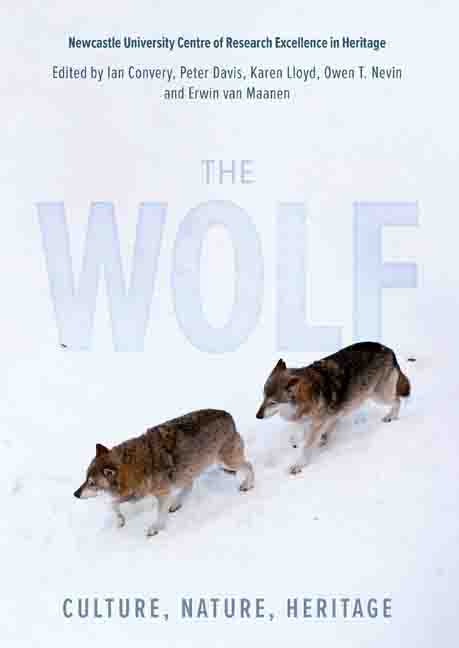Book contents
- Frontmatter
- Dedication
- Contents
- List of Illustrations
- Preface and Acknowledgments
- List of Abbreviations
- Poem: Trophic Cascade by Camille T Dungy
- Foreword
- Part I Imagining the Wolf
- Part II What Makes the Wolf
- Part III Return of the Wolf
- Part IV Personal Encounters
- Afterword: The Ecological Disadvantage of Living on an Island
- Glossary
- List of Contributors
- Index
Afterword: The Ecological Disadvantage of Living on an Island
Published online by Cambridge University Press: 10 January 2024
- Frontmatter
- Dedication
- Contents
- List of Illustrations
- Preface and Acknowledgments
- List of Abbreviations
- Poem: Trophic Cascade by Camille T Dungy
- Foreword
- Part I Imagining the Wolf
- Part II What Makes the Wolf
- Part III Return of the Wolf
- Part IV Personal Encounters
- Afterword: The Ecological Disadvantage of Living on an Island
- Glossary
- List of Contributors
- Index
Summary
Much of this book has focused on the return of wolves to areas of the world where they had been extirpated (eg grey wolves in Germany, red wolves in the south-eastern states of America). I was invited to write this Afterword as an appeal for action in returning wolves to Britain, one of the few countries in the northern hemisphere where wolves are still missing.
Britain's complement of terrestrial wild nature was set by the engulfing of the land bridge to mainland Europe 9000 years ago (Walker et al 2020). Thus any species that was determinedly extirpated afterwards could not return by dispersal over land, only by the agency of humans. This is why I am envious of those countries in Europe that have recently seen the voluntary return of wolves as they have moved steadily westward across the continent. Reinstatement of large carnivores such as the wolf as a former native species is therefore contestable in Britain, with humans having the choice rather than it be left to wild nature.
The history in Britain is of an ever-downward spiral of destruction of wild nature from the elimination of predators inconvenient to land users (Lovegrove 2007). This led to the judgement by the Addison Committee, the first Parliamentary Committee on National Parks, in 1931, that there was no need of the types of National Park seen in North America that gave free, unfettered space to wild nature, because Britain was ‘a country where the fauna is practically limited to birds, insects and the smaller mammals’ (HMSO 1931). In what would be a well-rehearsed objection since then to reinstatement of large carnivores, the Committee went on to say: ‘Great Britain is small, densely populated, and highly developed and has relatively little land which is not already put to some economic or productive use.’ In effect, the report repudiated the notion that the depauperate state of Britain's wild nature could be reversed.
I wasn't aware of the Addison Committee report back in 2003 when I wrote and circulated a personal manifesto for the rewilding of Britain (Fisher 2003).
- Type
- Chapter
- Information
- The WolfCulture, Nature, Heritage, pp. 377 - 382Publisher: Boydell & BrewerPrint publication year: 2023



